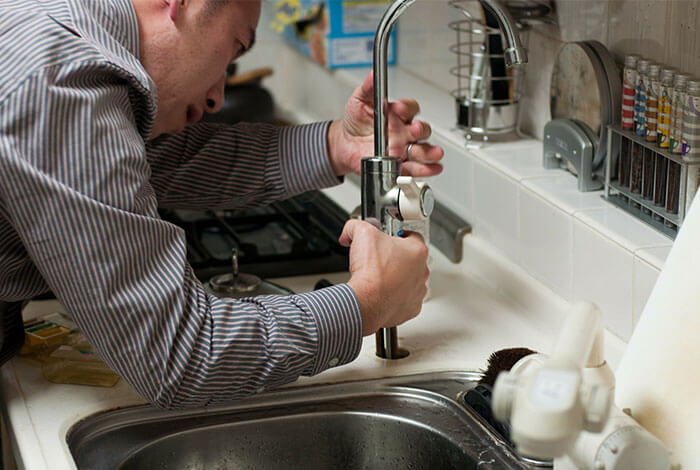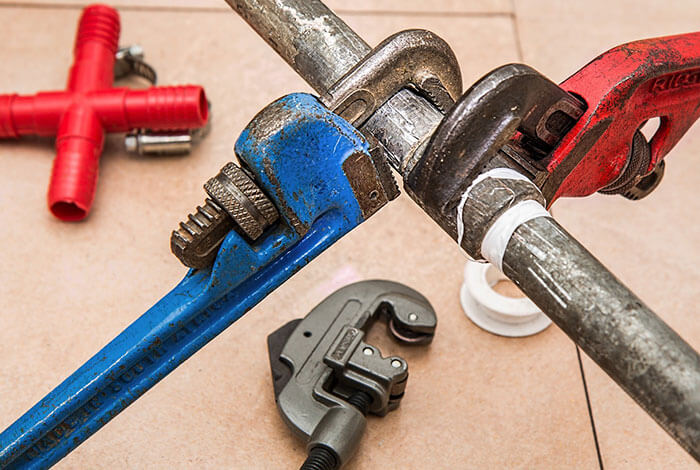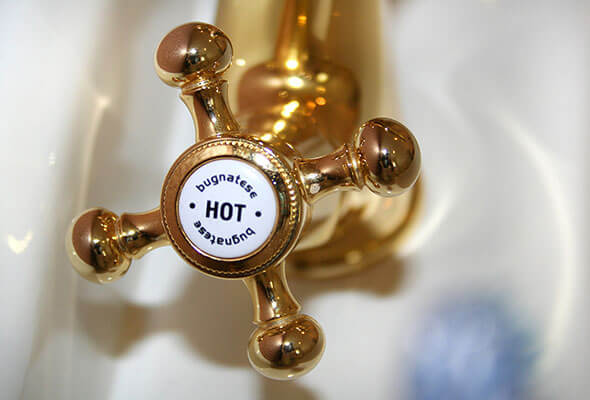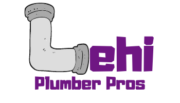Plumbing FAQs
Emergency Call - 24/7
Here are some of the most common Plumbing FAQs
Below you will find some of the most frequently asked questions regarding plumbing for your home or business. Don’t see an answer to your questions? No worry, give us a call.
Common Plumbing FAQs
We promise to provide the finest available solution and are licensed in Utah. Every one of our experts has received training to deal with any issues that can emerge. Both commercial new building and residential customers are served by us.
- Sewer & Main Supply Hook Ups
- Whole Home & Partial Repiping
- Recorded Video Camera Inspections
- Conventional & Tankless Water Heater Repair, Maintenance, and Installation
- Whole Home Water Filter Maintenance and Installation
- Hidden Leak Detection
- Garbage Disposals
- Drain/Supply Line Install and Relocation
- Emergency Plumbing
- Rooter/Drain Clog/Jetting Services
- Backflow Valve
- Repair/Maintenance
- Sump Pump Maintenance/Installs
- Toilet Maintenance/Repairs
- Sink/Shower/Tub
- Faucet Repair/Installs
We frequently take for granted numerous modern comforts in our daily lives—until we are forced to do without them. The convenience of being able to flush food trash down the drain is something you don’t appreciate until your garbage disposal breaks down. One of the most frequent problems we hear about is a garbage disposal that appears to be operating and emits a buzzing sound but is unable to shred any food. There are several explanations why this can be the case.
Your faucet’s water may have a minor tint after a long vacation away from home, but don’t worry—this normally goes away on its own in about a minute. But what if it frequently happens to your hot water? Does the tainted water pose a threat to your health? Is it suitable for cleaning, bathing, or cooking? Useable water is frequently present, and rusty pipes or an old water heater are frequently to blame.
Northern Utah can experience winter temperatures in the teens and even below, so local homes should take precautions to avoid frozen pipes. Your pipes may burst as a result of the expansion that occurs when water freezes because this can lead to serious issues and expensive plumbing repairs. Frozen pipes are typically caused by rapid temperature drops, insufficient insulation, and incorrectly adjusted thermostats.
Toilets
Dealing with a clogged toilet is typically messy and unpleasant. With a plunger, you can open a clogged toilet the simplest method possible. The plunger won’t operate properly unless there is sufficient water in the bowl to cover its head. Use a bucket or another container to add water if there isn’t enough. Avoid flushing since it can overflow. The blockage could come loose due to the plunger’s back and forth motion. If not, you might try using a plumber’s snake, but you should be aware that this would be a very messy task.
Sinks
Grease that has cooled and expanded in your pipes typically blocks sinks, particularly kitchen sinks. The problem is exacerbated as a result of the grease catching additional debris. The simplest method to avoid issues with your kitchen plumbing is to avoid the sink becoming blocked in the first place by refraining from pouring grease down the drain. The drain can be attempted to be unclogged using a plunger if it has become clogged. Using the plumber’s snake once more may help to quickly empty the pipe. Once more, Drano or a comparable substance can be used, but use any product like this with extreme caution.
Bathtubs
Hair will likely be an issue in your bathtub just like it is in the bathroom sink. Try the same things you would with a bathroom sink after removing the drain’s cover grate. Hopefully, this will continue to keep your Lehi bathroom plumbing functioning well.
Large Pipes
You could be facing a major problem if one of your home’s larger pipes is obstructed. Although a plunger and a plumber’s snake can be used, the obstruction might be too much for them to manage. Another significant problem in this situation is drain cleanser. Your pipes may become damaged if you have to pour as much substance as necessary through your system to unclog the drain. You could be need to call a plumber.
- At the main valve, turn off the water. Right there and then, you’ll halt more water damage from happening (a brief respite because you’ll know that things can only get better from here.)
- To the best of your ability, evaluate the damage and its surroundings. Check to see if the water has already moved (or can move) to a lower level if the pipe burst occurred on an upper level.
- Cut off the power to the impacted areas of your house. The mixture of water and electricity can result in shocks, electrocution, and even death, thus you cannot be “too safe” with this step. So, turn off all the electricity if you’re unsure.
- Snap pictures of the damage. You naturally want to start working. However, take a few moments to take photos or shoot photos as you work. When you submit an insurance claim, you will require these.
- For ventilation, open the windows. To circulate the air and lessen odors, if you still have electricity, turn on fans.
- Start removing the water using a wet vac. This process could take some time, and emptying the vacuum also takes some time, depending on how much water has accumulated. Continue until your efforts are literally ineffective.
- Prioritize wood flooring over carpet because it is more likely to warp. For emergency care instructions, check your flooring warranty. Wood floors should at the very least be properly dried out using fans.
- Pull back wet carpet and padding sections, and then use a powerful fan to dry the area.
- Look for water damage in your drywall. The drywall should be alright if the seams are still secure. You will require new drywall in addition to plumbing assistance from the Experts if the joints have swelled or separated.
Water pressure drop – Unexpected drops in water pressure can happen in your home. You need to check into the reason of this if it’s just your plumbing in Lehi and not a regional problem. If the dip just affects a small portion of your home, there might only be a problem there. You may have a problem with your water main if the issue spreads throughout your house.
Higher water costs – If your bills suddenly increase even if you haven’t made any significant changes to your water usage, you probably have a problem someplace. Even large leaks frequently happen in walls and other difficult-to-access places. The leak can perhaps go unnoticed.
Inconsistent water levels in toilets – This problem typically points to a sewer system issue. It’s possible that the line is broken or that tree roots have penetrated it. If ignored, this problem could worsen and start to harm the foundation of your house and the basement.
Unreliable water heater – If the hot water in your home is unreliable, you need to investigate the root of the problem. Your water lines, the heater, or both may contain silt. Additionally, your water heater can be too small.
Extra-green grass – Your lawn may have a patch of grass that develops more quickly, is greener, and is more luscious than the rest of the lawn. This can be a sign that a sewer line is leaking. There might also be an odd smell there.
Stains and wet spots on the ceiling and walls – This problem might be a leak in your home’s roof or exterior walls, or it might be a plumbing problem in Chico. Do not simply wipe the water away and go on. The leak may be more serious than you realize because it is hidden from view.
Tankless water heaters are less noticeable than traditional water heaters because they are significantly smaller—about the size of a suitcase. In the long run, you might be able to overlook the fact that they have a lower hot water flow rate and cost more up front.
When you turn on a hot water faucet, your water heater acts as a reservoir, holding 20 to 80 gallons of water at a time. This hot water is released from the top of the appliance, and cold water is pumped in to replace it from the bottom, keeping the tank filled at all times.
When you consider that water is continuously heated in the tank, even when a hot-water faucet in your home isn’t turned on, the operation seems reasonable enough. The end effect is “standby heat loss,” according to the US Department of Energy, a wasteful state that costs you money each month.
To reduce part of this loss, you can insulate your water heater, or you can hire professionals to do it for you. However, a tankless water heater avoids this issue even more successfully.
With a tankless water heater, when you turn on a hot water faucet, cold water enters the appliance through a pipe, where it is heated by coils and sent exactly where you need it—right away. The monthly energy savings can mount up without standby heat loss. According to some estimates, tankless water heaters:
- Homes that use 41 gallons or less of hot water per day may be 24 to 34 percent more energy efficient.
- can result in even higher savings if one is placed at each hot water outlet in a residence, up to 50%
- Result in an average annual savings of about $100
- For homes that use a lot of hot water, or 85 gallons or more of hot water per day, can be between 8 and 14 percent more energy efficient.
Your water expenses may be increasing for a number of reasons. The first thing to look for is leaks in the toilet. To see if water is spilling into the overflow line, check the tank’s water level. If water is entering the overflow pipe, adjust the fill valve to halt the flow at the water level indicated by the stamp on the tank’s side, which is typically one inch below the top of the overflow tube. The crew at Lehi Plumber Pros will perform routine maintenance to guarantee appropriate performance.
Don’t freak out if your toilet starts to overflow. By turning off the valve behind the toilet, you can stop the toilet from losing more water. After that, call the plumber and clean up the water.
If you have a storage tank for your water heater, regular maintenance will help it last longer. This stops sediment buildup and leaks. The unwanted deposits and debris that accumulate inside the tank are removed by thorough cleaning. Our plumbers in Lehi can give your water heater a flush treatment to keep it operating more effectively. We propose establishing a cleaning routine at least once a year for a water heater system that operates efficiently. By doing this, you may continue to increase the efficiency of your traditional water heater tank.
If your current water heater is more than 12 years old, it could be time to replace it. When hot water heater tanks get too old, they start to calcify, produce noise, leak, and even stop heating your water. All of these point to the necessity of replacing your water heater. If you’re dealing with any of these issues, contact Lehi Plumber Pros. We can install a tankless hot water heater or replace your current water heater, which many local home and business owners have been relying on for an endless supply of hot water.
Pipe cleaning and drain line clearing can be accomplished by hydro jetting. It unclogs any form of sludge, waste, or debris blocking your plumbing system and is non-invasive. Using a special sprayer with a multi-directional nozzle, hydro jetting forces a forceful water jet through your pipes and sewer lines. It is absolutely safe for your system, extremely healthy, and power balanced. A comprehensive hydro jetting session removes everything in its path, which prevents accumulation in the future. At Lehi Plumber Pros, we advise hydro jetting to clients looking for preventative cleaning as well as in some situations for unclogging tougher obstructions.
Cameras attached to sewage systems are frequently used to inspect drains for issues. They allow professionals to look inside drains clearly, which can aid in precisely identifying the sources of obstructions and leaks. If you have certainly had persistent pipe issues, such as back-ups and blockages, you ought to order sewage system video camera examinations. To make sure your sewer system is in good shape and identify any problems from beginning to end, preventative sewer camera inspections can be performed. For accurate diagnosis, our skilled plumbers rely on sewage system camera inspections. We can view the camera footage to observe what’s happening inside your pipes. Our skilled plumbers can choose the most effective solution to the problems after we have a clear understanding of the problem.



Professional Emergency Plumbing - 24/7
Not finding the answer to your question in our plumbing FAQs? Give us a call and we will help you figure things out. We’re ready to help.
